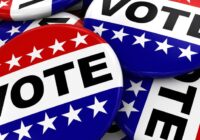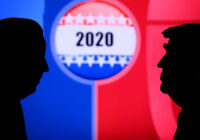For at least the past 30 years, the strategy of the Democratic Party in the US has consistently focused solely on winning elections by arguing that its oligarchic loyalties are less servile than those of the Republicans. Since Bill Clinton’s presidency in the 1990s, the party has never strayed from that orientation, even after repeatedly losing elections.
Through two ultimately disappointing presidential primary campaigns, Senator Bernie Sanders failed to reform the party’s political culture. Now, according to The New York Times, the kind of “change we can believe in” that former President Barack Obama promised but failed to deliver and the “revolution” that Sanders led until he decided to give up and follow the crowd may be emerging, thanks to the COVID-19 pandemic.
Mexico’s President Shockingly Calls The NY Times Neoliberal
The Times wants its readers to believe that the party that calls itself Democratic may at last discover the meaning of democracy as per Abraham Lincoln: “[A] government of the people, by the people and for the people.” The NYT’s correspondent, Alexander Burns, titles his article, “Big Democratic Ideas That Make Everything Better.” Thanks to the pandemic, he tells us, the party’s elite are awakening to the principle that the needs and desires of the people should sometimes have priority over the requirements of their donors in determining their approach to governance.
To make his case, Burns wastes no time misrepresenting recent history. After stressing the importance of disruptive reform, he reminds his readers that it probably won’t happen. “As Mr. Biden surely knows from his years as vice president — most of all the battle over the Affordable Care Act — voters who demand new policies from the government in one moment may not patiently endure the disruptions and unintended consequences that tend to accompany structural change, particularly in times of economic hardship,” he writes.
Burns makes two serious mistakes here. He denies his own basic premise, that a crisis permits extraordinary actions unthinkable in normal times. And he misrepresents the history of the Affordable Care Act and other reforms proposed in the recent past.
A simple modification of vocabulary could improve the accuracy of his historical account. The following emended version of Burns’ text highlights in italic the crucial change of vocabulary: “As Mr. Biden surely knows from his years as vice president… [when] voters demand new policies from the government in one moment … [donors] may not patiently endure the disruptions and unintended consequences that tend to accompany structural change.”
Here is today’s 3D definition:
Endure:
For the powerless, to support something painful and opposed to their interest with the hope of survival in spite of everything, simply because they have no choice. For the powerful, to appear to acknowledge something that will be painful for them while using all of their clout to make sure it never happens.
Contextual Note
In the first three words of the preamble to the US Constitution, “We the people” claim collective authorship. These same people are the ones Lincoln believed to be in charge of a government that existed for the purpose of responding to their needs. Lincoln even succeeded in expanding the notion of “people” to include an entire race that had formerly been branded as chattel rather than human subjects. He didn’t, however, expand it broadly enough to include the people who had for millennia inhabited the territory now called the United States. Native Americans only became recognized as citizens in 1924 and earned the right to vote across the full expanse of the US in 1962.
There’s another sense in which Lincoln’s memorable description of US democracy has never been true. The political system evolved very quickly into a class-based structure of government that produced a new kind of non-aristocratic elite. The emergence of a two-party system consolidated that trend. Each party constituted its elite. And though they agreed to differ on their specific political credo, together the parties ended up sharing an identity as two factions of a ruling class with remarkably similar cultural values.
Broadly speaking, the Republicans built a propaganda system based on the idea of economic freedom. The Democrats built theirs on respect for the “common man,” sometimes referred to as the working class, or rather the “middle class” that works for a salary. This was to distinguish it from the industrial working class, the Marxist proletariat that populated the socialist and communist movements in Europe.
In the past two election cycles, Sanders’ populist assault on the Democratic Party’s elite forced an awareness of a very real ideological split within the party and a possible revolt against its elite. The split occurred around the attitude to take toward “the people.” The first is to persuade the nation’s financial and economic elite to be kinder to ordinary people than they would tend to be naturally. The second is to clamor for giving ordinary citizens a voice inside the government. The second is very difficult to accomplish, for the simple reason that most of the places are already taken.
The NYT’s article reads like a propaganda piece striving to reconcile both sides, especially when it insists that “there are already strong signs of consensus within Mr. Biden’s party, as once-cautious electoral and legislative tacticians shed their opposition to huge price tags and disruptive change amid a crisis that has melted traditional obstacles to government action.” This is intended to seduce the Bernie supporters.
One significant problem remains: the lack of any concrete examples of commitment to “disruptive change.” As we have seen, Burns takes the position that, even if the commitment existed, history tells us it will never happen because its cost will not be “endured.”
Historical Note
Throughout US history, the idea of the identity of the “we” in “We the people” has been up for debate. Abraham Lincoln himself symbolically embodied the ambiguity. Born in a log cabin, he is remembered as a “common man.” But as a practicing lawyer, his class identity switched to that of the ruling elite, at ease in the corridors of public decision-making and, thanks to his talent for oratory, assured of a prosperous career.
Joe Biden, the presumptive Democratic nominee for the presidential election in November, was not born in a log cabin and yet claims to hail from the working class. His father was a wealthy oil businessman who nevertheless encountered some hard times. Like Lincoln, Biden became a lawyer. In the late 20th century, even more so than in Lincoln’s time, being a lawyer meant belonging to the elite. It was also the most obvious launching pad for a political career.
Alexander Burns insists on the impact today’s COVID-19 pandemic will have on the orientation of the Democratic Party. He quotes Senator Mark Warner of Virginia, a centrist Democrat: “There is a recognition that this event is more transformative than 2008, more transformative than 9/11, more transformative than the fall of the Berlin Wall.” This leads to a vague promise by Jake Sullivan, a close policy adviser of Biden: “We are going to have to do more, push further, be more creative coming out of this once-in-a-century pandemic”
One paragraph in Burns’ article sums up the ambiguity of Biden’s quest: “Mr. Biden also said he wanted to ‘insist that big corporations, which we’ve bailed out twice in 12 years, set up and take responsibility for their workers and their communities.’” Burns calls this “a striking flash of populist sentiment that Mr. Biden has not yet translated fully into policy.” Others would be tempted to call this a flash in the pan or simply hollow, demagogic rhetoric, precisely because it is unlikely to be “translated fully into policy” any time soon. And even if it were adopted as policy, it would probably never become law.
What Burns is signaling to the American public is that The New York Times intends to have its readers “endure” six months of vapid cheerleading for a seriously problematic Democratic candidate whose greatest hope is that the electorate will see President Donald Trump as even more problematic. But if Biden fails to find a serious angle to mark the difference with standard wishy-washy Democratic policy, he will face another problem. While Trump is also deeply problematic, for the average American he appears as a paragon of the entertainment elite. Biden, in contrast, is not just problematic, but also an uninspiring and boring member of the Washington elite.
For most people, these are times of anguish, not boredom. If the Democrats succeed in making boredom appear as a remedy for the anguish produced by the coronavirus pandemic, Biden will have his chances. But his odds will drastically improve if, instead of counting on The Times to do his propaganda, he could find a way of convincing “the people” that he will dare to be disruptive in his policies.
*[In the age of Oscar Wilde and Mark Twain, another American wit, the journalist Ambrose Bierce, produced a series of satirical definitions of commonly used terms, throwing light on their hidden meanings in real discourse. Bierce eventually collected and published them as a book, The Devil’s Dictionary, in 1911. We have shamelessly appropriated his title in the interest of continuing his wholesome pedagogical effort to enlighten generations of readers of the news.]
The views expressed in this article are the author’s own and do not necessarily reflect Fair Observer’s editorial policy.
Support Fair Observer
We rely on your support for our independence, diversity and quality.
For more than 10 years, Fair Observer has been free, fair and independent. No billionaire owns us, no advertisers control us. We are a reader-supported nonprofit. Unlike many other publications, we keep our content free for readers regardless of where they live or whether they can afford to pay. We have no paywalls and no ads.
In the post-truth era of fake news, echo chambers and filter bubbles, we publish a plurality of perspectives from around the world. Anyone can publish with us, but everyone goes through a rigorous editorial process. So, you get fact-checked, well-reasoned content instead of noise.
We publish 2,500+ voices from 90+ countries. We also conduct education and training programs
on subjects ranging from digital media and journalism to writing and critical thinking. This
doesn’t come cheap. Servers, editors, trainers and web developers cost
money.
Please consider supporting us on a regular basis as a recurring donor or a
sustaining member.
Will you support FO’s journalism?
We rely on your support for our independence, diversity and quality.






